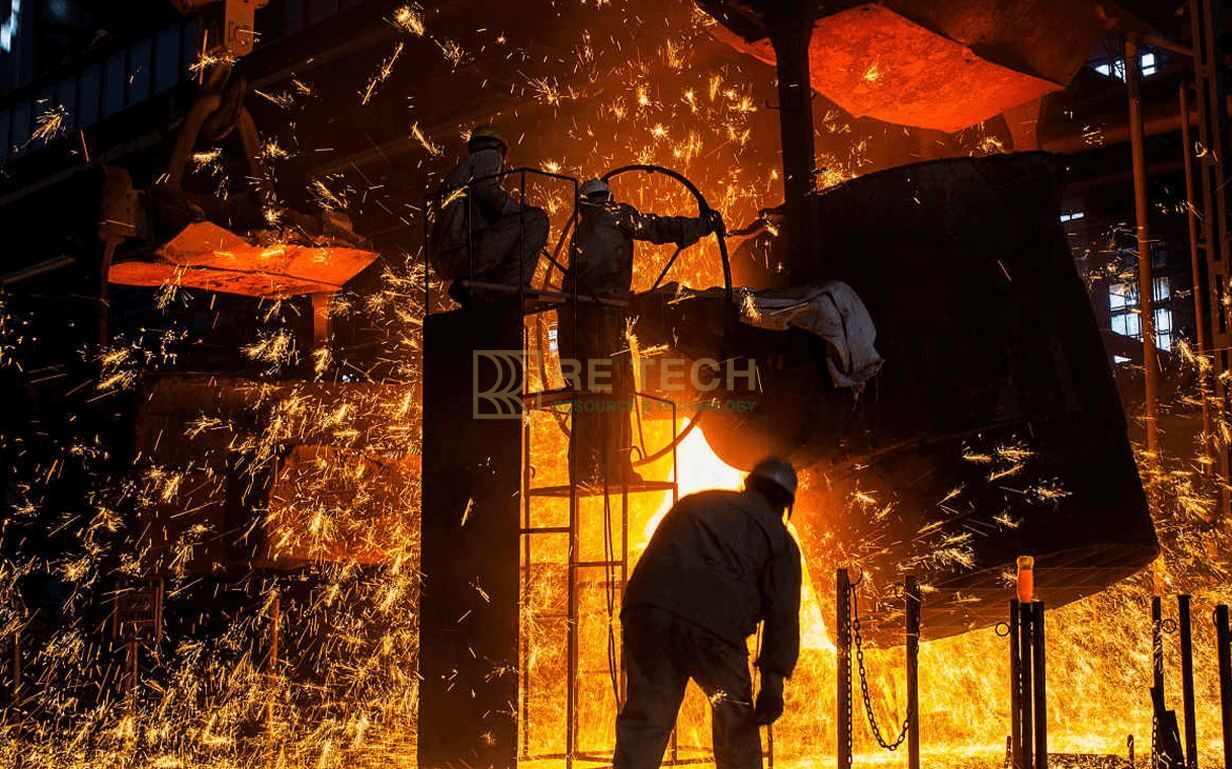In today's era of environmental awareness and resource conservation, the recycling and refining of materials like lead have become paramount. Lead, a versatile metal with various industrial applications, poses environmental risks if improperly handled or disposed of. To address these challenges, innovative technologies for lead recycling, refining furnaces, and melting processes have emerged, offering sustainable solutions that mitigate environmental impact and promote resource efficiency.

The Importance of Lead Recycling:
Lead is a valuable resource widely used in batteries, electronics, construction materials, and automotive components. However, lead poses significant environmental and health risks when disposed of improperly, such as through landfilling or incineration. Lead recycling plays a vital role in reducing the demand for virgin lead ore extraction, minimizing pollution, and conserving natural resources. By recycling lead-containing products, we can recover valuable materials for reuse while mitigating the environmental footprint associated with lead production and disposal.
Refining Furnaces in Lead Recycling:
Refining furnaces are essential components of the lead recycling process, facilitating the purification and separation of lead from other materials. These furnaces utilize high temperatures to melt lead-containing scrap, such as lead-acid batteries or metal alloys, into a molten state. During refining, impurities such as sulfur, antimony, and arsenic are removed through processes like fluxing and skimming, resulting in high-purity lead suitable for various applications. Modern refining furnaces are equipped with advanced controls and emissions management systems to ensure efficient operations and minimize environmental impact.
Advancements in Lead Melting Technologies:
Lead melting technologies have evolved to enhance efficiency, safety, and environmental sustainability in lead recycling operations. Traditional methods, such as blast furnaces or reverberatory furnaces, have been supplemented or replaced by more advanced techniques, including rotary furnaces, kettle furnaces, and induction furnaces. These modern melting technologies offer benefits such as lower energy consumption, reduced emissions, and enhanced metal recovery rates. Induction furnaces, for example, use electromagnetic induction to generate heat directly within the metal, resulting in faster melting times and precise temperature control.
Environmental Considerations and Regulations:
While lead recycling and refining offer significant environmental benefits, it's essential to prioritize safety and compliance with regulatory standards. Lead recycling facilities must adhere to strict environmental regulations governing emissions, waste management, and worker health and safety. Proper handling of lead-containing materials, emission control measures, and waste minimization practices are crucial for mitigating environmental risks and ensuring sustainable operations.
Lead recycling, refining furnaces, and melting technologies play pivotal roles in promoting environmental sustainability, resource conservation, and circular economy principles. By recycling lead-containing materials, we reduce the demand for virgin resources, minimize pollution, and mitigate the environmental and health risks associated with lead production and disposal. Advanced refining and melting technologies further enhance efficiency, safety, and environmental performance in lead recycling operations. As we continue to prioritize sustainable practices and innovation, the recycling and refining of lead will remain integral to building a greener, more resilient future.
Welcome to RE TECH – the name that is synonymous with innovation, excellence, and sustainability in the field of metallurgy and recycling! We're proud to be a world-leading furnace manufacturer and an integrated solution provider for comprehensive recycling of non-ferrous metal and safe disposal of heavy metal hazardous wastes.



Comments
All Comments (0)